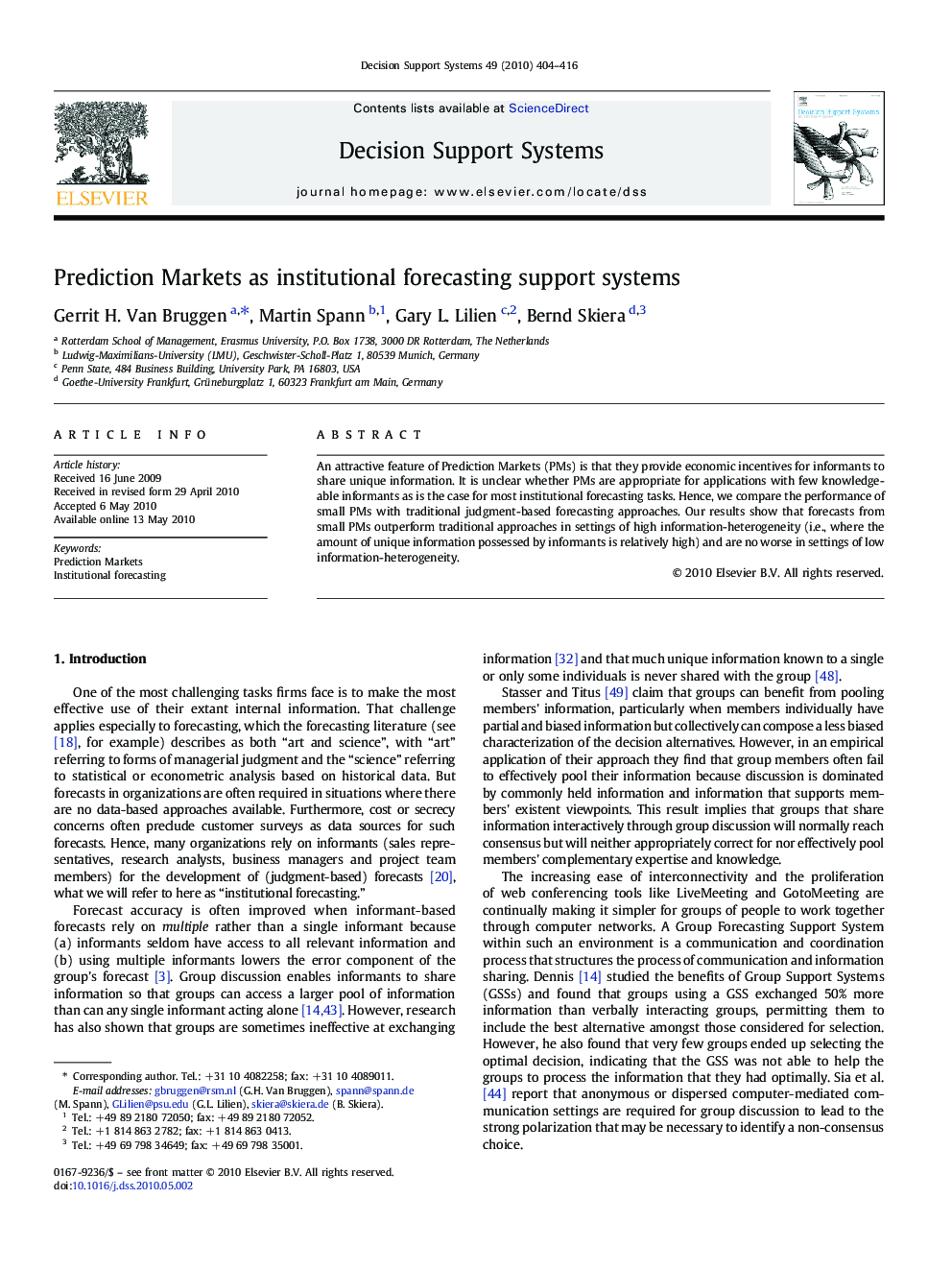| Article ID | Journal | Published Year | Pages | File Type |
|---|---|---|---|---|
| 554798 | Decision Support Systems | 2010 | 13 Pages |
Abstract
An attractive feature of Prediction Markets (PMs) is that they provide economic incentives for informants to share unique information. It is unclear whether PMs are appropriate for applications with few knowledgeable informants as is the case for most institutional forecasting tasks. Hence, we compare the performance of small PMs with traditional judgment-based forecasting approaches. Our results show that forecasts from small PMs outperform traditional approaches in settings of high information-heterogeneity (i.e., where the amount of unique information possessed by informants is relatively high) and are no worse in settings of low information-heterogeneity.
Keywords
Related Topics
Physical Sciences and Engineering
Computer Science
Information Systems
Authors
Gerrit H. Van Bruggen, Martin Spann, Gary L. Lilien, Bernd Skiera,
